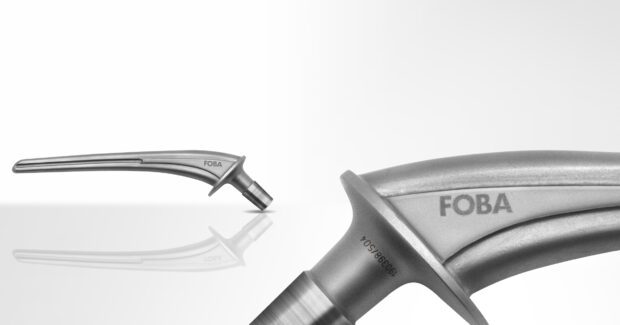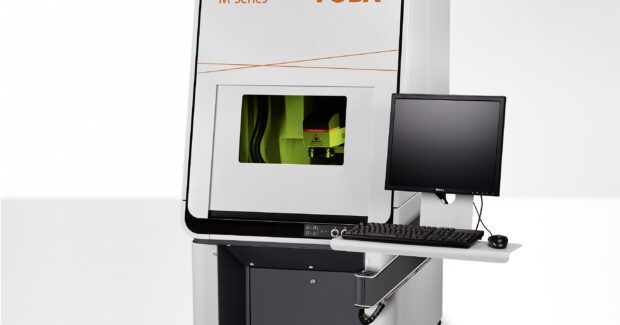Medical UDI Laser Marking Solution and FOBA Titus To Be Featured at MD&M
FOBA will also display Titus, its new vector scan laser marking head, the smallest and lightest on the market.
Posted: January 23, 2020
At the MD&M West trade show in Anaheim, CA (Feb.11-13, 2020), FOBA (Selmsdorf, Germany) will showcase its M2000 laser marking workstation with an integrated vision-assisted UDI laser marking solution, especially for medical device manufacturers. Another featured product will be FOBA’s latest innovation Titus, the new vector scan laser marking head which is the smallest and lightest on the market and an ideal fit for facilitated line integration.
An international supplier of laser marking systems with long-term expertise especially in the field of medical device UDI direct part labeling, FOBA attends the world’s largest medical design and manufacturing event to present its latest innovations as well as proven marking solutions. FOBA sees itself not only as a supplier of advanced technical solutions but also offers its customers comprehensive consulting and expertise regarding the implementation of UDI according to the latest legal requirements.
“Our U.S. sales team will take the opportunity to demonstrate laser marking on a M2000 laser marking workstation live at the booth”, says Letizia Caselle, regional sales manager, Americas. “FOBA’s customers can rely on an integrated marking solution to make their medical devices compliant with the UDI-requirements according not only to the FDA but also to the new European MDR.”
Most FDA-deadlines for the direct part UDI marking of medical devices that are used more than once and intended to be reprocessed before each use have already passed. However, as the European Medical Device Regulation (MDR) will come into effect on May 26, 2020, the implementation of a reliable laser marking system becomes even more important for medical manufacturers.
FOBA’s laser marking solutions enable precise marking results and maximum operating efficiency. Laser marks can be applied on any kind of medical products like stainless steel surgical instruments, titanium implants or plastic single use items. The optionally integrated camera is situated directly in the laser head, which enables automated part detection. The innovative marking feature FOBA Mosai can make part fixtures obsolete. A three-step marking process includes not only a precise mark alignment, but also the pre- and post-marking validation of parts and marking results.






